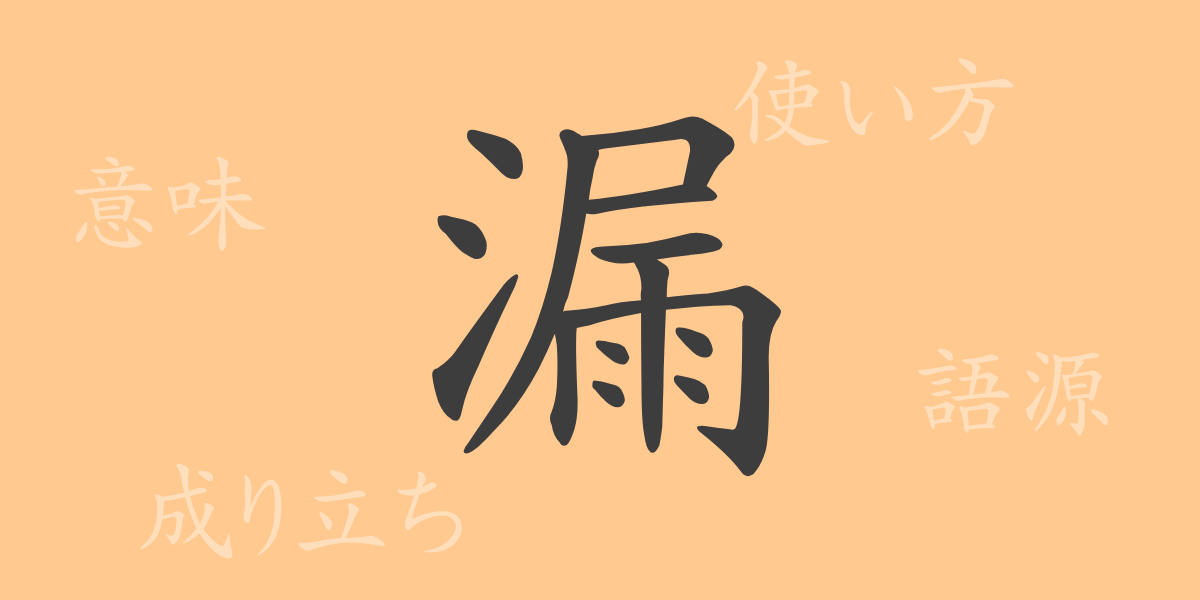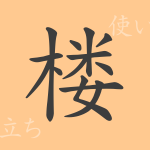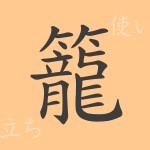The meaning embedded in a single kanji character carries a profound story shaped by its form and history. The commonly used Japanese kanji (かんじ, “kanji”) “漏” (ろう, “rō”) is no exception. What secrets are hidden within this character that we often encounter in everyday life? In this article, we will delve into the origins, meanings, usages, readings, and idiomatic expressions involving “漏”. Why not begin your journey into the world of kanji with “漏”?
The Origins of 漏 (ろう, “rō”)
Exploring the origins of the kanji “漏” (ろう, “rō”) is akin to taking a journey into its etymology. In ancient China, it evolved from pictographs depicting water spilling from a container. The character comprises the radical “氵” (さんずい, “sanzui”), which is related to water, at the top, and “屚” (ろう, “rō”) at the bottom. The “屚” originally depicted the act of water leaking, eventually transforming into the present-day “漏” over time.
The Meaning and Usage of 漏 (ろう, “rō”)
The kanji “漏” (ろう, “rō”) signifies “water or light leaking out” and “secrets being disclosed.” This character is used not only to describe physical leakage but also to refer to the leakage of information or emotions. In Japanese, it frequently appears in verbs like “漏らす” (もらす, “morasu”) and “漏れる” (もれる, “moreru”), as well as in compound words such as “漏電” (ろうでん, “rōden,” electrical leakage) and “情報漏洩” (じょうほうろうえい, “jōhō rōei,” information leakage). It is an essential kanji used frequently in everyday conversations and business contexts.
Readings, Stroke Count, and Radical of 漏 (ろう, “rō”)
Understanding the readings and structure of the kanji “漏” (ろう, “rō”) can provide deeper insights into its meanings.
- Readings: On’yomi (音読み, “on’yomi”) is “ろう” (rō), and Kun’yomi (訓読み, “kun’yomi”) includes “もる” (moru) and “もれる” (moreru)
- Stroke count: 14 strokes
- Radical: 氵 (さんずい, “sanzui”)
Idiomatic Expressions, Proverbs, and Phrases Using 漏 (ろう, “rō”)
Idiomatic expressions, proverbs, and phrases that include “漏” (ろう, “rō”) reflect the character’s inherent meanings. For instance, “漏電” (ろうでん, “rōden”) means electrical leakage, “漏れ聞く” (もれきく, “morekiku”) means to overhear something, and “一滴も漏らさず” (いってきももらさず, “itteki mo morasazu”) signifies retaining everything without losing a single drop. These expressions highlight the richness of the Japanese language.
Conclusion on 漏 (ろう, “rō”)
The kanji “漏” (ろう, “rō”) tells many stories through its form and history. Symbolizing the leakage of water or information, this character is used in various contexts in the Japanese language, demonstrating the depth of words. We hope this article enhances your understanding of the kanji “漏” and helps you in your daily language choices.

























